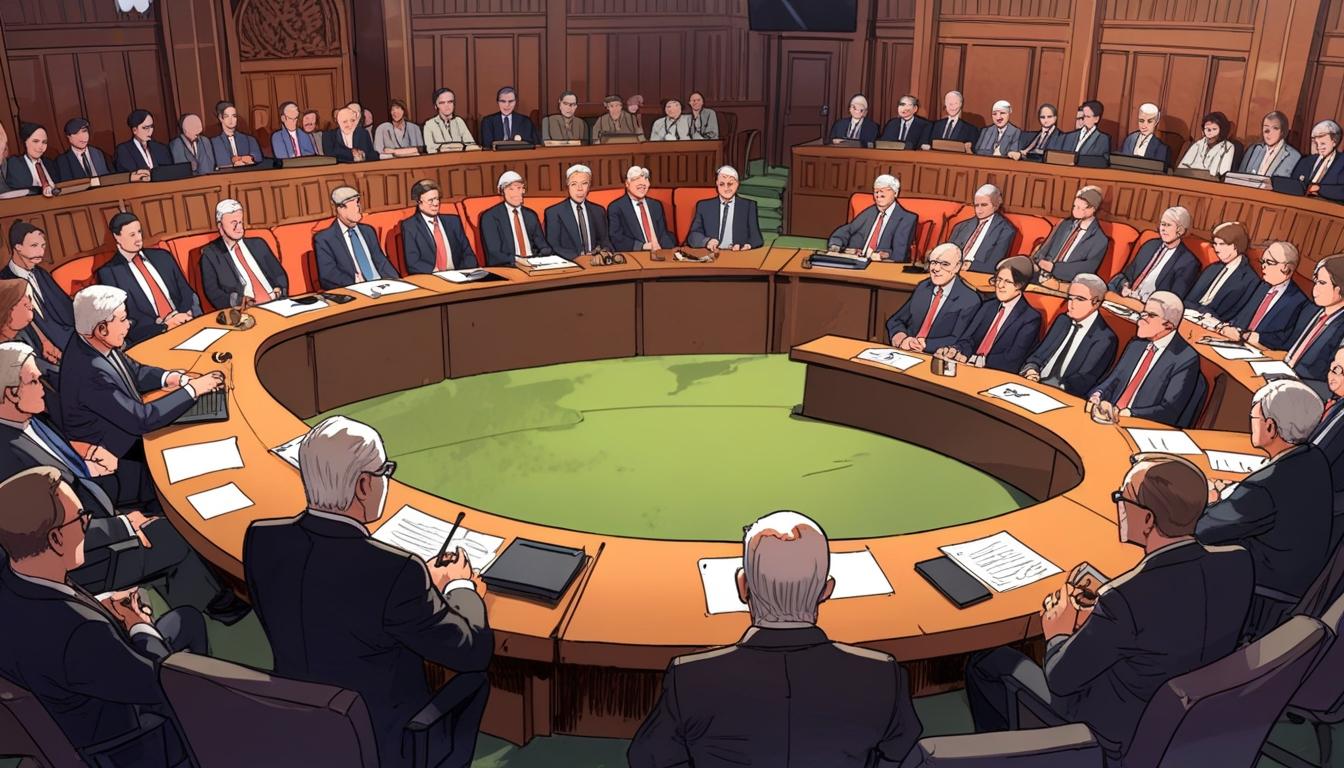The recent acquisition of British Steel by Labour has highlighted concerns regarding the management of industrial assets in the United Kingdom. This move follows a series of emergency parliamentary sittings, which some have argued should only be convened during significant crises, such as wars, rather than in response to what is perceived as a self-inflicted situation, partly stemming from ambitious net-zero policies.
British Steel has been deemed essential to the national interest, raising questions about the ownership of other critical infrastructures, including airports and utilities. The discourse around ownership extends beyond just steel; scrutiny has been cast upon other assets such as Heathrow Airport, Thames Water, and Royal Mail, particularly concerning foreign ownership and its implications.
In the United States, President Joe Biden has initiated an investigation into pharmaceutical imports under the Trade Expansion Act of 1962, an action that allows for trade barriers on goods considered vital for national security. This has prompted discussions in the UK regarding the appropriateness of foreign ownership of key national assets. Critics argue that overseas decisions on matters that influence local production and employment can be detached and lack consideration for the UK’s economic landscape.
Daniel Kretinsky, a Czech billionaire, is involved in several contentious deals, including a £3.6 billion acquisition of Royal Mail, which is notably being financed by £3 billion in high-cost debt in addition to £2 billion already on his balance sheet. Concerns have been raised about the viability of such leveraging, particularly in the context of a challenging financial environment marked by rising US bond rates and dwindling confidence in high-yield markets. It has been suggested that Kretinsky’s financial obligations could lead him to seek a government bail-out, echoing historical trends wherein companies facing financial strain have turned to public funds for support.
The ownership and management of Thames Water has also come under scrutiny, with past foreign owners blamed for mismanagement, leading to severe environmental consequences. A notable incident occurred when a substation fire led to disruptions at Heathrow, owned by an overseas entity, highlighting vulnerabilities associated with foreign ownership in critical sectors.
In the backdrop of these discussions, De La Rue, once a prominent player in the UK public company landscape, has taken steps to alleviate debt by selling parts of its operations, including a recent deal for £300 million involving its authentication services. This move is part of a broader attempt to adapt to changing market conditions and increasing pressure from investors advocating for significant changes in the company’s strategy.
Additionally, the financial landscape is being affected by initiatives from controversial figures such as Neil Woodford, whose past management failures caused substantial losses for a large number of investors. Woodford's announcement of a new stock-picking service has raised alarms, prompting calls for oversight from regulatory bodies to protect consumers from potential risks associated with his ventures.
Overall, these developments signal a tumultuous period for significant British assets and raise fundamental questions about ownership, foreign involvement, and the broader economic implications of these transactions. The ongoing discussions reflect a complex intersection of national interest, industrial policy, and financial strategy in the current UK economic landscape.
Source: Noah Wire Services
